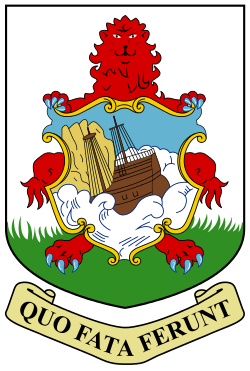| | |||||||||||||||||||||||
11 December 1980 | |||||||||||||||||||||||
All 40 seats in the House of Assembly 21 seats needed for a majority | |||||||||||||||||||||||
| Turnout | 79.84% ( | ||||||||||||||||||||||
|---|---|---|---|---|---|---|---|---|---|---|---|---|---|---|---|---|---|---|---|---|---|---|---|
This lists parties that won seats. See the complete results below.
| |||||||||||||||||||||||
 |
|---|
| Law |
| Administrative divisions |
General elections were held in Bermuda on 11 December 1980. [1] [2] The result was a victory for the United Bermuda Party, which won 22 of the 40 seats.
